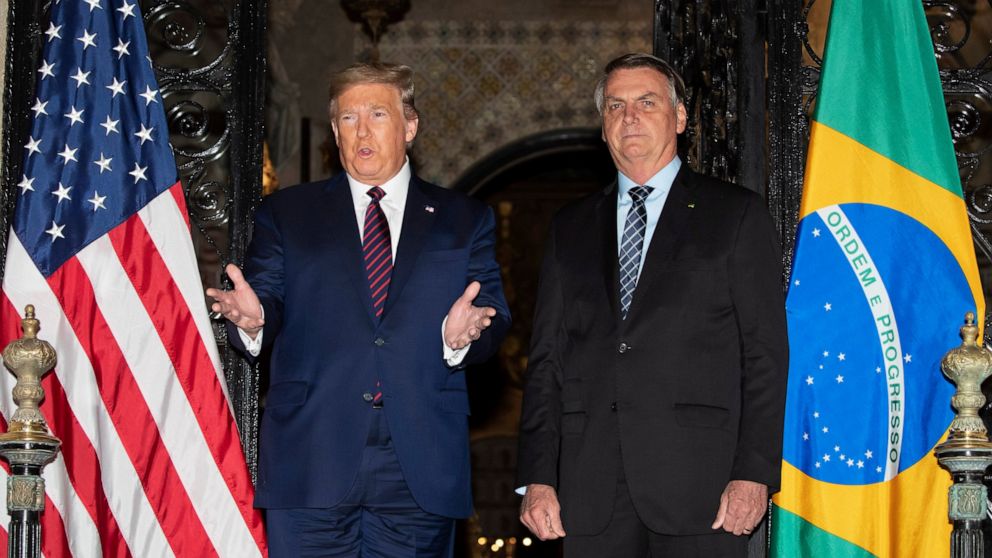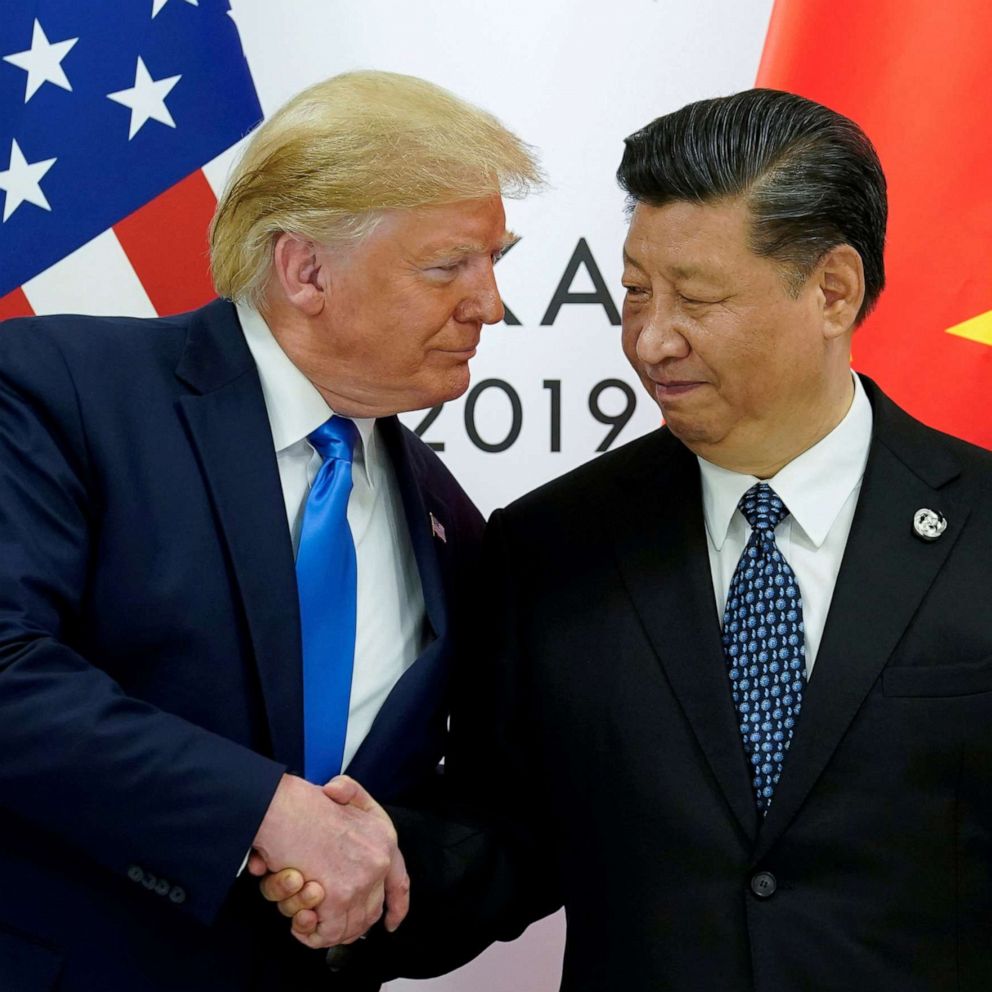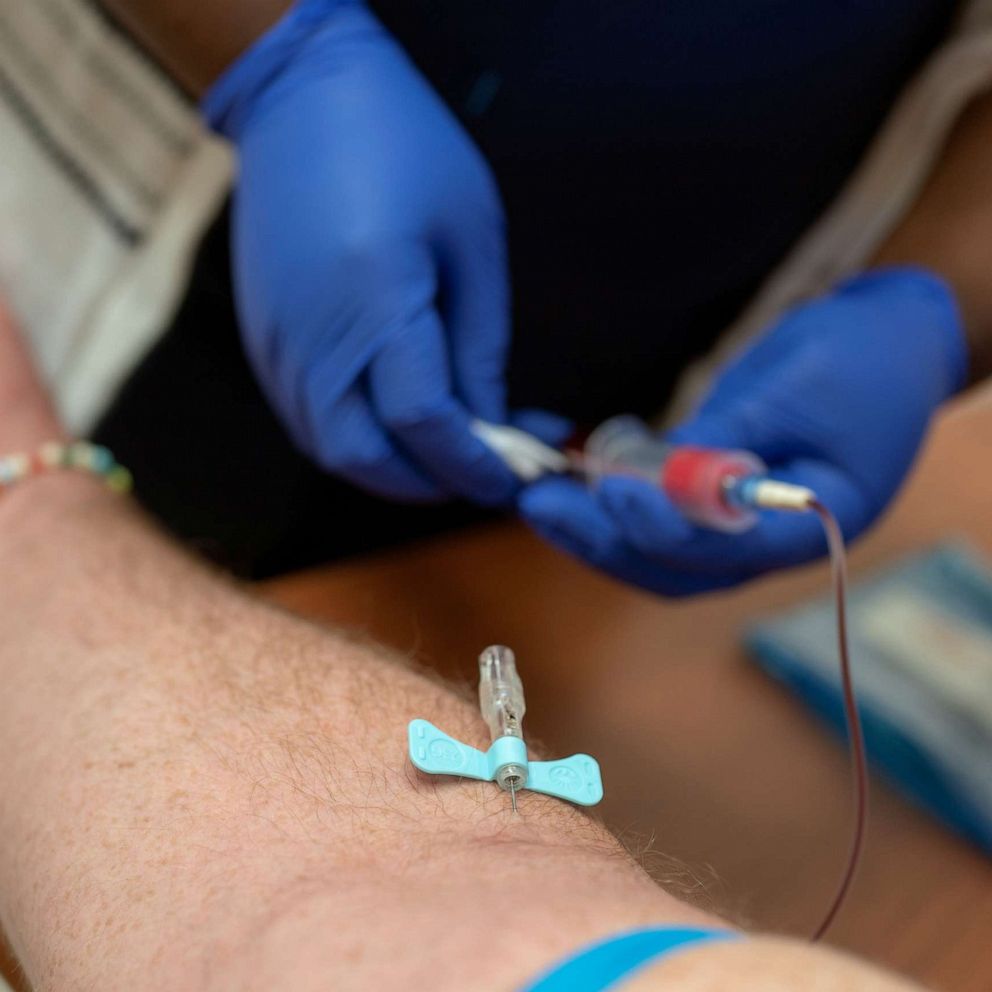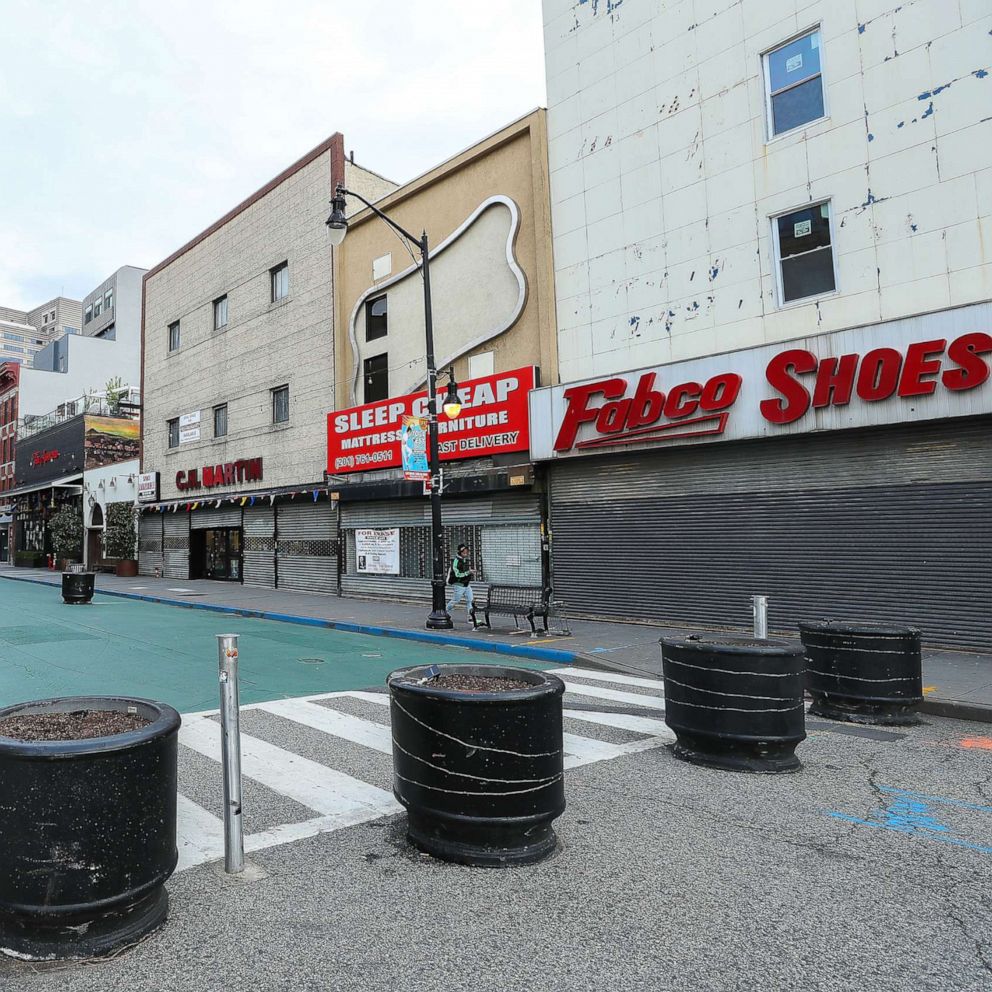US weighs restricting travel from Brazil amid fears it may be next coronavirus hot spot
The U.S is considering restricting travel from Brazil as the country's outbreak of the novel coronavirus worsens and threatens to make it the new epicenter of the pandemic.
But even as the Trump administration considers such strong steps, it continues to tout its ties to Brazilian President Jair Bolsonaro, who critics say is the reason the caseload in Latin America's largest country has exponentially risen. The right-wing populist president who President Donald Trump consistently calls a "good friend" has dismissed the coronavirus as a "little flu," urged Brazilians to keep going to work, and fired his health minister for disagreeing with his push to reopen the economy.
With 5,466 killed by COVID-19, the disease caused by the coronavirus, Brazil's death toll has now surpassed that of China, where cases first exploded. It has the second highest number of cases in the Western Hemisphere, behind only the U.S., although its total is likely much higher given a shortage of testing.
Asked about that climbing death toll on Tuesday, Bolsonaro shrugged and responded, "So what? I'm sorry. What do you want me to do? My name's Messiah, but I can't work miracles," a reference to his middle name Messias.
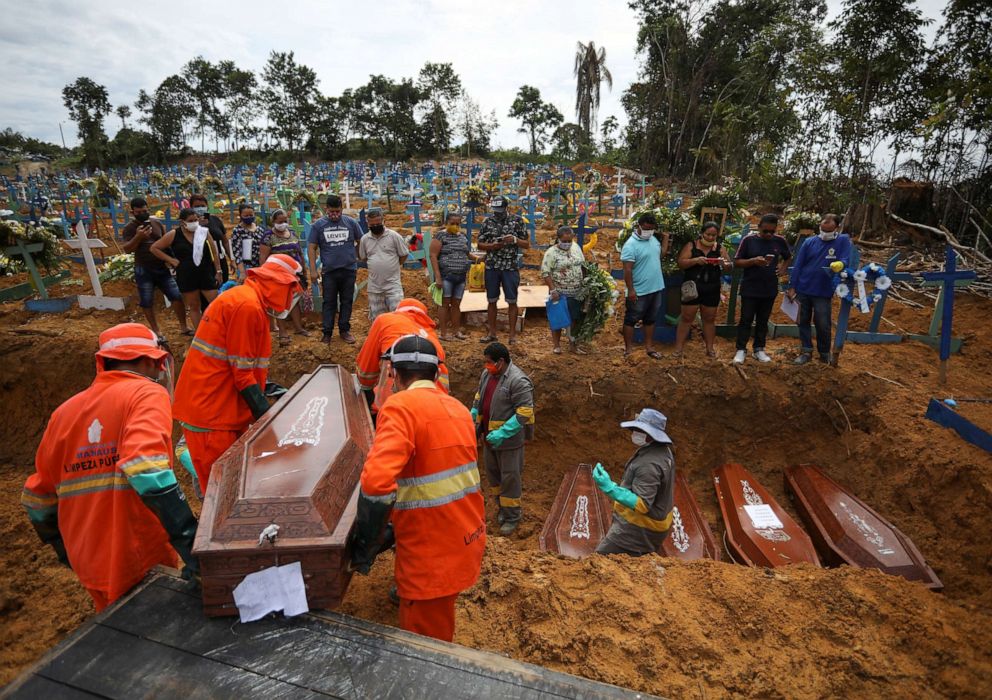
In a country of 211 million people, some scientists have estimated that over 1 million may be infected already, according to the Associated Press. Aerial images of mass graves have sparked deep concern, with anger against Bolsonaro and even calls for his impeachment growing and evident in panelaços -- protests of banging pots and pans.
Tune into ABC at 1 p.m. ET and ABC News Live at 4 p.m. ET every weekday for special coverage of the novel coronavirus with the full ABC News team, including the latest news, context and analysis.
Nearly all of Brazil's governors have pushed back and enacted stay-at-home orders. But Bolsonaro has actively undermined those efforts, even leading a protest rally near army headquarters in the capital Brasilia just last week. In Brazil's fiercely divisive politics, his anti-quarantine push has also rallied supporters, especially as states' lock-down measures put people out of work and leave them hungry.
"At times like this, it is crucial to have a clear orientation, but unfortunately, we have witnessed the diffusion of contradictory guidelines that hinder compliance with the necessary measures," said Ana de Lemos, executive director of Doctors Without Borders Brazil.
Hospital systems in Rio de Janeiro and four other major cities are already overwhelmed with patients and nearing failure, medical officials told the Associated Press. Rio de Janeiro state has nearly 9,000 cases with almost 800 deaths already, but the hardest hit state has been São Palo, home to South America's largest city, where there are over 26,000 cases and 2,200 deaths, according to Brazil's Health Ministry.
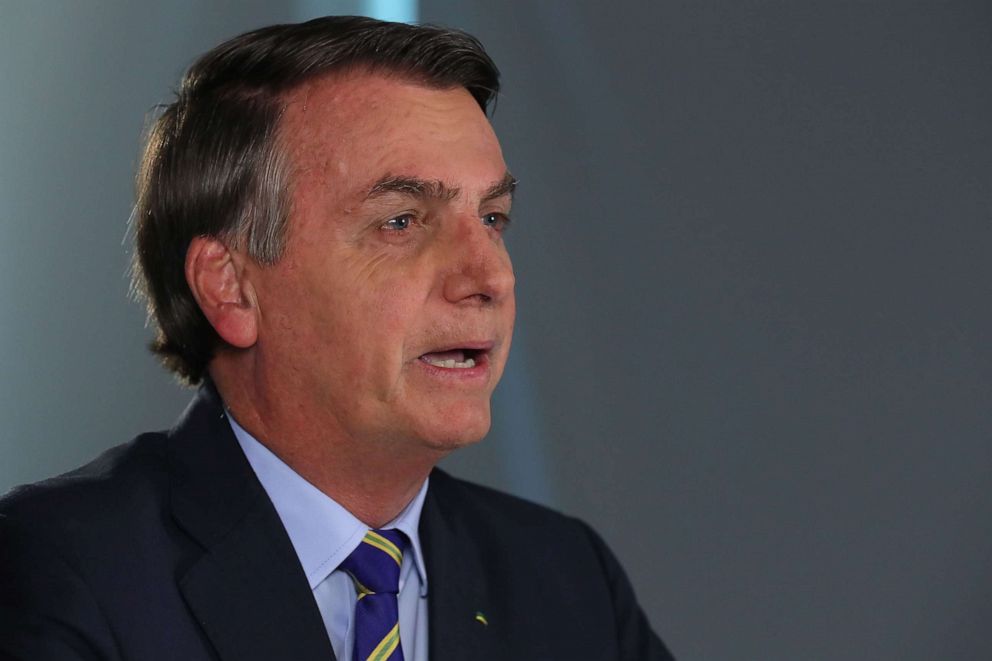
Many of Brazil's cities, particularly Rio and São Paulo, are tightly packed, with millions living in poor slums known as favelas -- making social distancing all but impossible and threatening to whip COVID-19 through communities in a flash. For states in the northwest that border Venezuela, their health systems are also already stretched thin by the hundreds of thousands of migrants fleeing the political and economic crisis under President Nicolás Maduro there.
While Bolsonaro has been blamed for the deteriorating crisis, Trump seemed to downplay his responsibility, saying, "Brazil went a different way than other countries in South America. If you look at the chart, you'll see what happened, unfortunately, to Brazil."
Other U.S. officials have not criticized Bolsonaro's response either. Secretary of State Mike Pompeo singled the country out for praise Wednesday for expelling some Cuban doctors in recent years that are deployed by the communist Cuban government as laborers and diplomatic capital, but which Pompeo called "human trafficking."
There was also no hint of criticism in a call between Pompeo and his Brazilian counterpart Ernesto Araújo Wednesday, according to the U.S. readout. Instead, the two men "discussed the importance of a coordinated response to combat the COVID-19 pandemic," according to the department, as well as "ways to intensify the economic and security partnerships between our two countries."
A senior State Department official declined to address a reporter's question on Bolsonaro's handling of the virus during a briefing Tuesday. Instead, Deputy Assistant Secretary for Western Hemisphere Affairs Jon Piechowski said the U.S. is "in touch" with Brazilian leadership "on a daily basis," but is not yet providing any assistance with medical supplies or other resources.
One new step under consideration, however, is implementing restrictions on travel from Brazil to the U.S., according to Trump, like those still in place for China and 28 European countries.
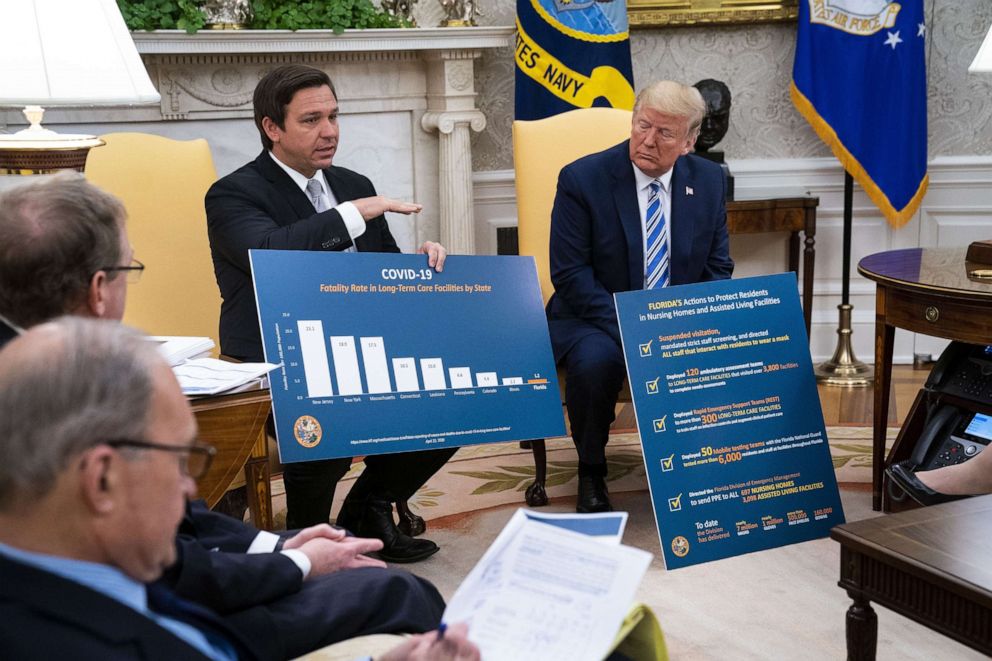
"We're looking at it very closely," he told reporters at the White House Tuesday during a meeting with Florida Gov. Ron DeSantis, who first raised the issue and whose state sees a lot of international travel through the Miami Airport hub. Trump asked DeSantis to let him know whether he should restrict travel, which the Republican governor promised to do.
Short of a travel ban, Trump said his administration is also considering requiring airlines to take passengers' temperatures or test them for the coronavirus before boarding.
Trump himself faced exposure to COVID-19 from Brazil. During a visit on March 7, Trump hosted Bolsonaro and a visiting Brazilian delegation for dinner, and days later, one of Bolsonaro's top aides, press secretary Fabio Wajngarten who was photographed next to Trump wearing a "Make Brazil Great Again" hat, tested positive for the virus. Both Bolsonaro and Trump later tested negative.
What to know about coronavirus:
- How it started and how to protect yourself: Coronavirus explained
- What to do if you have symptoms: Coronavirus symptoms
- Tracking the spread in the U.S. and worldwide: Coronavirus map
